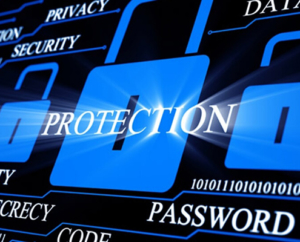Use a Password Manager Or You WILL Get Hacked
Do you ever use the same password over and over again for different accounts? If so, you are not alone. However, this is quite dangerous. It’s best to use a different, unique password for each account, and to make it easier, you should use a password manager.
 According to surveys, people understand that they should use unique passwords, and more than half of people get stressed out due to passwords. Furthermore, about 2/3rds of people said that they had forgotten a password or that a password issue had cause problems at work.
According to surveys, people understand that they should use unique passwords, and more than half of people get stressed out due to passwords. Furthermore, about 2/3rds of people said that they had forgotten a password or that a password issue had cause problems at work.
However, a password manager can easily solve the issues associated with passwords. A password manager is a type of software that can store login info for any and all websites that you use. Then, when you go to those websites, the password manager logs you in. These are safe, too. The information is stored on a secure database, which is controlled by a master password.
Using a Password Manager
Most people have more than one online account, and again, it’s so important to have a different password for each account. However, it’s very difficult to remember every password for every account. So, it’s not surprising that people use the same one for all of their accounts. But, if using a password manager, you can make it a lot easier.
- When using a password manager, you can create a password that is safe and secure, and all of your passwords are protected by your master password.
- This master password allows you to access all websites you have accounts on by using that master password.
- When you use a password manager, and you update a password on a site, that password automatically is updated on all the computers that use your password manager.
Password Managers Can Ease Your Stress
When you first start using a password manager, it’s likely that you’ll notice you have fewer worries about your internet accounts. There are other things you will notice, too, including the following:
- When you first visit a website, you won’t put your password in. Instead, you can open the password manager, and then there, you can put your master password.
- The password manager you use fills in your username and password, which then allows you to log into the website with no worries.
Things to Keep in Mind Before You Use a Password Manager
Password managers available on the internet from many reputable security companies. However, before you pay for them, there are some things that you should keep in mind:
- All of the major internet browsers have a password manager. However, they just can’t compete with the independent software that is out there. For instance, a browser-based password manager can store your info on your personal computer, but it may not be encrypted. So, a hacker can might that information anyway.
- Internet browser-based password managers do not generate custom passwords. They also might not sync from platform to platform.
- Software based password managers work across most browsers such as Chrome, Internet Explorer, Edge, Firefox and Safari.
Password Managers are Easy to Use
If you are thinking about using a password manager, the first step is to create your master password.
- The master password has to be extremely strong, but easy to remember. This is the password you will use to access all of your accounts.
- You should go to all of your accounts and change your passwords using the password manager as an assistant. This ensures that they are as strong as possible, too.
- The strongest passwords contain a combination of numbers, uppercase and lowercase letters, and symbols. Password managers often create passwords using this formula.
Managing your accounts online is really important, especially when you are dealing with passwords. Yes, it’s easy to use the same password for every account, but this also makes it easy for hackers to access those accounts.
Don’t Reuse Your Passwords
You might think it would be easy to reuse your passwords, but this could be dangerous:
- If your password is leaked, hackers can get access to all of your sensitive information like passwords, names, and email addresses, which means they have enough information to access other sites.
- When a website is hacked, and all of your passwords and usernames are discovered, the scammer can then plug in those passwords and usernames into all of your accounts to see what works. These could even give them access to your bank account or websites like PayPal.
Ensuring Your Passwords are Secure and Strong
There are a number of ways to ensure your passwords are secure and strong. Here are some more ways to create the best passwords:
- Make your passwords a minimum of eight characters long.
- Mix up letters, numbers, and symbols in the password, making sure they don’t spell out any words.
- Have a different password for every account that you have. This is extra important for accounts containing financial information, like bank accounts.
- Consider changing your password often. This ensures your safety and security.
If you have a weak password, you are much more susceptible to hacks and scams. So, protect your online existence, and start utilizing these tips.
Robert Siciliano personal security and identity theft expert and speaker is the author of 99 Things You Wish You Knew Before Your Identity Was Stolen. See him knock’em dead in this identity theft prevention video.

























